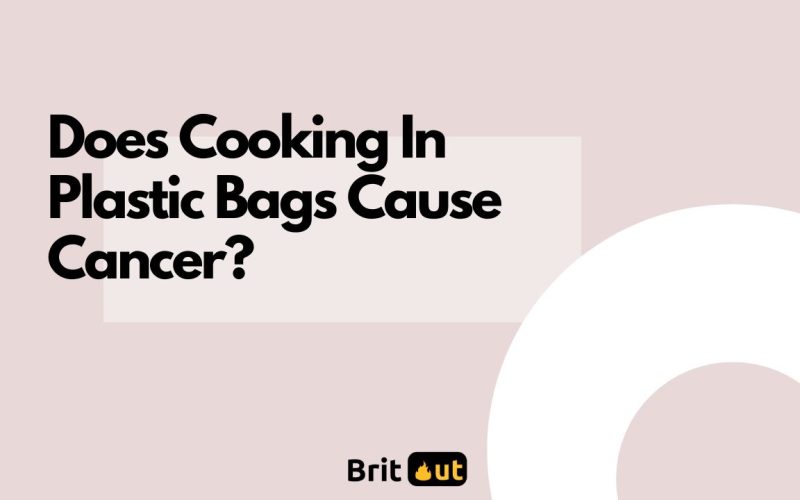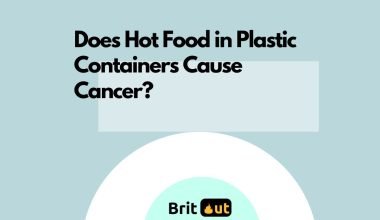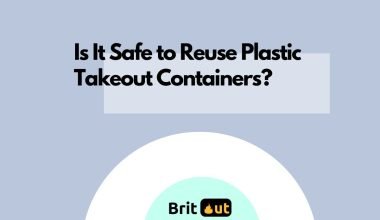Cooking in plastic bags has become increasingly popular in recent years as a convenient and easy way to prepare meals.
However, have you ever wondered how safe it is? and even more importantly, whether or not it could cause cancer. Let’s talk about this in this post.
What Are Plastic Bags Made Of?
Plastic bags are a common household item used for a variety of purposes, including food storage and cooking.
However, not all of them are created equal.
But the worst is how the materials used to make them can have a significant impact on their safety from food contact.

Most plastic bags used for food storage and cooking are made from either polyethene or polypropylene, both of which are types of thermoplastic polymers.
These polymers are created by combining monomers, which are small molecules that can be linked together to form long chains. Polyethylene is the most common material used to make plastic bags.
It is a type of polymer that is derived from petroleum and is known for its strength, flexibility, and resistance to moisture.
Polyethylene can be further classified into high-density polyethylene (HDPE) and low-density polyethylene (LDPE), which have different properties and uses.
Polypropylene is also commonly used for making plastic bags. It is also derived from petroleum and has similar properties to polyethylene but with added heat resistance. However, not all plastic bags are made from these two materials.
Some other bags are made from other types of polymers, such as polyvinyl chloride (PVC) or polycarbonate (PC).
These materials can contain harmful chemicals such as bisphenol A (BPA) or phthalates, which can leach into food and potentially cause health problems.
When it comes to cooking in plastic bags, it is important to choose bags that are specifically designed for food contact and made from materials that are safe for use with food.
Look for bags that are labeled as “food-grade” or “BPA-free,” and avoid bags that are made from PVC or other potentially harmful materials.
It is also important to follow the manufacturer’s instructions for using plastic bags for cooking. Some bags may be designed for use in the microwave or oven, while others may not be suitable for high-heat cooking.
By following these guidelines and being aware of the materials used to make plastic bags, you can reduce your risk of potential harm and continue to use plastic bags safely in your daily life.
Does Cooking In Plastic Bags Causes Cancer?
The idea that cooking in plastic bags can cause cancer has been circulating for a while, but what does the scientific evidence say?
While it is true that some plastics contain chemicals that have been linked to cancer in animal studies, the amount of exposure that humans typically experience from cooking in plastic bags is very low.
The Food and Drug Administration (FDA) has approved certain types of plastics for use in food contact applications, including cooking bags. These plastics are considered safe for use in cooking, provided that they are used according to the manufacturer’s instructions.
However, some experts have raised concerns about the potential health risks associated with cooking in plastic bags, particularly when the bags are exposed to high temperatures.
When plastic is heated, it can release chemicals called plasticizers, which can migrate into food and potentially cause harm.
The specific type of plastic used for cooking bags can also play a role in their safety.
For example, some plastics contain bisphenol A (BPA), which has been linked to a range of health issues, including cancer.
While BPA has been banned in many countries, it is still used in some plastic products.
To minimize your exposure to potentially harmful chemicals, it is important to follow the manufacturer’s instructions when using plastic cooking bags.
This may include using bags that are specifically designed for high-temperature cooking, avoiding overfilling the bags, and not reusing bags that have been previously used for storing food.
It is also worth noting that there are alternative cooking methods that do not involve the use of plastic bags, such as cooking in glass or stainless steel containers, or using parchment paper instead of plastic bags.
However, the evidence is not conclusive, it is possible that cooking in plastic bags could pose a risk to your health.
What Chemicals Can Leach Into Food From Plastic Bags, and How Can They Affect Your Health?
When you cook food in plastic bags, there is a risk that chemicals can leach into your food and potentially cause harm.
The specific chemicals that can leach into food from plastic bags depending on the type of plastic used and the conditions of cooking.
One group of chemicals that can be of concern is plasticizers, which are chemicals that are added to plastic to make it more flexible.
One example of a plasticizer that is commonly used in cooking bags is diethylhexyl phthalate (DEHP), which has been linked to a range of health issues, including cancer.
Another group of chemicals that can leach into food from plastic bags is antioxidants, which are added to plastic to prevent it from breaking down and becoming brittle.
One common antioxidant used in plastic bags is butylated hydroxyanisole (BHA), which has been linked to cancer in animal studies.
The type of plastic used for cooking bags can also play a role in the chemicals that can leach into food.
Some plastics, such as polyvinyl chloride (PVC), contain chemicals that are known to be harmful to human health, such as vinyl chloride.
Other plastics, such as high-density polyethylene (HDPE), are considered to be safer for food contact applications.
To minimize your exposure to potentially harmful chemicals from plastic bags, it is important to follow the manufacturer’s instructions when using them.
This may include avoiding using bags that are not specifically designed for cooking, and not reusing bags that have been previously used for storing food.
It is also worth noting that some types of food may be more likely to absorb chemicals from plastic bags than others.
For example, fatty foods such as meat and cheese may be more likely to absorb plasticizers than less fatty foods.
Conclusion
There is scientific evidence to suggest that certain chemicals can leach into food from plastic bags, but the amount and potential health effects of these chemicals remain uncertain.
Therefore, it is important to choose plastic bags that are specifically designed for food contact and labeled as safe and to follow the manufacturer’s instructions for use.
If you are concerned about the safety of cooking in plastic bags, alternative cooking methods such as using glass or stainless steel containers can also be considered.






